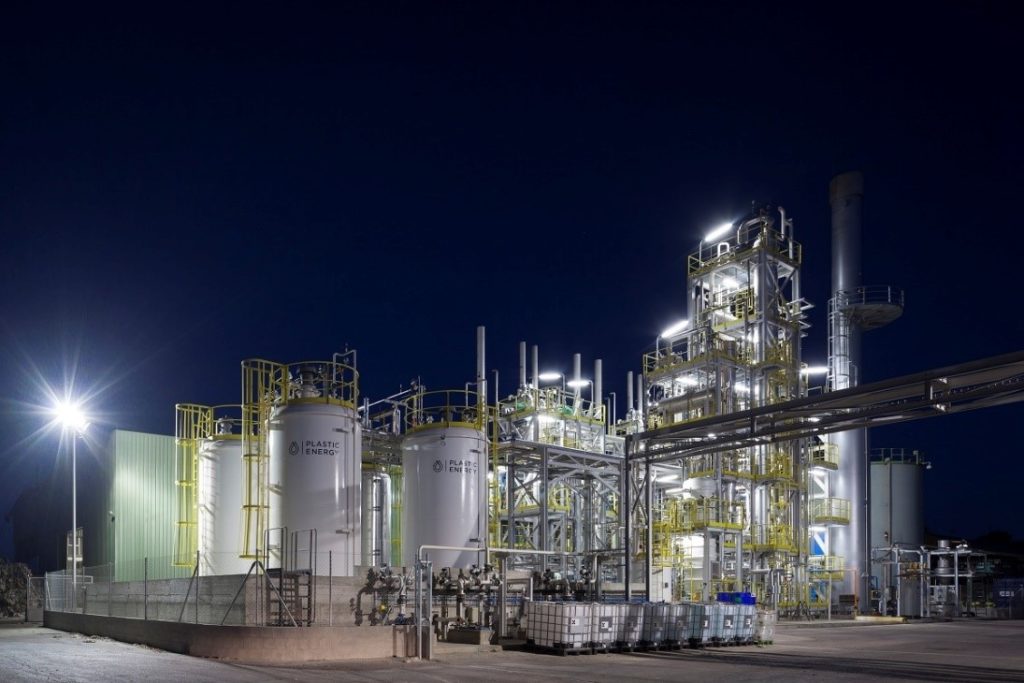The Plastics Recycling Puzzle: Can Chemistry Close the Loop?
Challenges associated with plastics across their lifecycle have become increasingly apparent in recent years. There are significant emissions attributed to their production, most of which are from fossil fuels, and the careless disposal of plastics has contributed to a huge build-up of waste in oceans. Recent reports state microplastic pollution is likely to be vastly underestimated. Legislation targeting plastics, such as extended producer responsibility, landfill taxes and restrictions on plastic use should help. Encouragingly, a multitude of initiatives involving many players across the value chain-including the Circular Plastics Alliance and the Plastics Pact– are looking to address the challenge. But despite all of this, plastics- especially single use plastics- persist. Added to this, recycling rates remain poor and low oil prices make virgin plastics relatively attractive in comparison. Unfortunately, most plastic remains destined for incineration or landfill.
Why Chemical Recycling?
In the simplest terms, chemical recycling breaks down plastic, changing the chemical structure. It is different to physical recycling processes, such as mechanical recycling, which leave the chemical bonds intact. There are two main applications:
· For the treatment of mixed plastic waste remaining after mechanical recycling
Chemical recycling can be an effective complement for a stream otherwise destined for incineration or landfill. In certain cases, such as for the processing of multi-layered plastic used in food packaging, chemical recycling is effectively the only recycling option. Applicable technologies include gasification, pyrolysis, and catalytic cracking.
· For homogenous streams
Often with materials sorted in mechanical recycling, chemical recycling can be part of a process to produce a high-quality, virgin-like polymer with properties that are better than mechanically treated plastic wastes. There are a number of applicable depolymerization technologies.
Treatment of Mixed Plastic Waste
A distinction can be made between plastics to plastics (P-to-P) and plastics to fuels (P-to-F), but recent activity is notable for the level of engagement of chemical corporates and the interest in plastic-to-plastic technology. Enerkem is well known for operating a commercial scale plant based on steam gasification.
Initially focused on methanol production, their plant in Canada converts 100,000 tons of waste into 38 million liters of methanol, ethanol, and ethylene. In 2019, the company partnered with Shell, Air Liquide, Nouryon and the Port of Rotterdam to develop a waste-to-chemicals facility in Rotterdam. More recently, Enerkem entered into a joint development agreement with NOVA chemicals to explore turning non-recyclable and non-compostable municipal waste into ethylene, a plastics feedstock. Meanwhile, BASF, a founding member of the Alliance to End Plastic Waste, launched the ChemCycling™ project in 2018. BASF works with technology partners who use pyrolysis to transform the plastic waste into pyrolysis oil which is then fed into chemical production at the beginning of the value chain (e.g. in a steam cracker). In 2019, BASF invested $18 million in Quantafuel, a specialist for pyrolysis of mixed plastic waste and purification of pyrolysis oil. As part of the investment agreement, BASF will have a right of first refusal to all pyrolysis oil and purified hydrocarbons from Quantafuel’s plant, located in Skive (Denmark). Interestingly, BASF recently released details of a Life Cycle Assessment of their ChemCycling project which concludes that chemically recycled plastics cause significantly lower CO2 emissions than those produced from primary fossil resources. The study also found that the manufacturing of plastics via chemical recycling (pyrolysis) or mechanical recycling (of mixed plastic waste) both result in similar CO2 emissions.
Another pyrolysis-based technology is deployed by Plastic Energy. Founded in 2011, the company operates two commercial scale plants (in Seville and Almeria, Spain) which run 24/7, 330 days a year. Clients include Sabic and Repsol, plus, Tupperware and Unilever are already beginning to use the Certified Circular Polymers resulting from Plastic Energy’s partnership with Sabic. We spoke to Cloé Ragot from Plastic Energy who explained their approach. “Given the growing demand for high-quality recycled plastic and the clear environmental challenge raised by plastic waste, Plastic Energy chose to take a circular strategy very early on with the goal of producing feedstock for new plastics through production of naphtha suitable for petrochemical crackers”. Plastic Energy has ambitions to own and operate ten plants in Europe and has projects under development with Petronas, SABIC, INEOS and most recently, Viridor. The company plans to raise funding to support these ambitions later this year.

Meanwhile, UK-based Recycling Technologies attracted an $11.4 million investment from Mirova and Neste earlier this year. The funding will be used to build the company’s first commercial scale, modular fluidized bed reactor which can be used to convert mixed plastic waste into a low sulfur hydrocarbon called “Plaxx oil” (for which Neste has agreed an offtake agreement). In Australia, Licella use a process based on Catalytic Hydrothermal Reactor (Cat-HTR™) which uses a combination of supercritical water and catalysis to decompose plastic polymers and vaporize the resulting hydrocarbons. Earlier this year Licella, along with their joint venture, Mura, partnered with BioLogiQ to deploy their Cat-HTR™ technology in China.
Upgrading End of Life Polystyrene
For homogenous streams, chemical recycling of polystyrene is particularly attractive. Venture-backed GreenMantra has been a forerunner in this area since founding in 2010. GreenMantra utilizes proprietary heterogeneous catalysts that enable selective thermal catalytic depolymerization of polystyrene to produce synthetic waxes and polymer additives. Recently, the company was awarded a $800k grant from the Canadian federal government. 2018 saw the formation of Styrenics Circular Solutions (SCS) which brings together the entire styrenics value chain. We spoke to Chrissi Schönfelder at SCS, who explained that polystyrene is ideally suited for depolymerization, which complements mechanical recycling for food contact materials. “It is a one step process to go back to a liquid monomer at a high yield, which is easily purified in the distillation process”. The efficiency of this process is helped due the relatively low temperature at which polystyrene can be depolymerized. This monomer can then be repolymerized to produce recycled styrenic plastics that have the same quality as the virgin material, thus meeting food contact standards. Several SCS members are developing chemical recycling technologies. Agilyx targets centralized recycling and recently announced plans to deploy a commercial-scale polystyrene chemical recycling facility in Channahon, Illinois. The company also recently licensed its chemical recycling technology to Japan-based Toyo Styrene for deployment of a plant to recycle post-use polystyrene back to styrene monomer. In addition to this, Agilyx is finding new market applications and recently partnered with Lucite international to use depolymerization technology for chemical recycling of PMMA.
Another technology provider, Pyrowave, and SCS announced a collaboration with INEOS Styrolution, Versalis (Eni), Total and Trinseo in which Pyrowave’s depolymerization technology will undergo an in-depth evaluation along with SCS members. We spoke to Virginie Bussières of Pyrowave who explained how benefits of the Pyrowave technology are both environmentally friendly and economically sound. “The styrene produced by Pyrowave holds significant value on the virgin market, more so than mechanically recycled polystyrene. Plus, the equipment requires 15 times less energy to operate than the production of virgin styrene and creates three times fewer GHG emissions”. Virginie further explained Pyrowave’s unique positioning in the market. “It’s a modular technology the size of a small container which allows for local treatment of small volumes of plastics, which avoids the additional transportation costs and GHG emissions typically required in bigger plants. Additionally, the treatment capacity can be adapted to the volumes simply by adding modules.” Pyrowave is also developing the process to treat polyethylene and polypropylene. The company’s technology has also been shown to produce recycled styrene monomer from plastic waste which can be later integrated in the production of synthetic rubber. Pyrowave recently announced a successful Series B funding round led by tire producer, Michelin, and Sofinova Partners.
Upgrading End of Life PET
Another key application for chemical recycling is the processing of polyethylene terephthalate (PET) commonly used in textiles, carpets, films and PET bottles. Again, corporates are active in this area. Eastman’s carbon renewal technology breaks down waste PET into molecular building blocks. Eastman expects to use up to 50 million pounds of waste plastic in carbon renewal technology operations in 2020, and projects are currently underway to expand that amount. More recently in 2019, LyondellBasell announced plans to build a new, small-scale pilot facility at its Ferrara (Italy) facility. Developed with Karlsruhe Institute of Technology, LyondellBasell’s proprietary molecular recycling technology, known as MoReTec, uses a catalyst in the pyrolysis process which can be faster and more energy-efficient than traditional chemical recycling. Meanwhile, Carbios released a paper detailing a breakthrough in their enzymatic bioprocess in April 2020. The company notably attracted a $16 million investment from Michelin Group and L’Oreal in 2019. Another publicly traded company, Loop Industries , agreed an offtake agreement with L’Oreal in March 2020. Loop Industries’ low temperature, low pressure depolymerization technology produces Dimethyl Terephthalate (DMT) and Monoethylene Glycol (MEG) from waste PET plastic and polyester fiber feedstocks. There are several startups active in PET recycling:
- Ioniqa transforms all types and colors of PET waste into valuable resources for “virgin-quality” new PET in a process incorporating a ‘magnetic smart liquid’ that Ioniqa has developed. In January 2019, Ioniqa raised $13.7 million, with participation from Coca-Cola, to build a 10kton commercial plant on the Chemelot Industry Park in Geleen (The Netherlands). According to industry reports, Ioniqa are also researching upcycling for other types of plastics.
- Poseidon Plastics is developing a process to break down waste PET plastic to produce BHET. In 2019, Poseidon Plastics signed an agreement with DuPont Teijin Films to jointly develop Poseidon’s polyester recycling technology.
- Depolyis developing a low-temperature, low-pressure depolymerization process producing terephthalic acid (TPA) and MEG from post-consumer PET plastic waste. The process can selectively treat PET plastic in the presence of other plastics like polypropylene or polyvinyl chloride, which is the challenge of current recycling technologies.
- gr3n is currently developing a depolymerization process based on the application of microwave technology as part of the EU DEMETO project. The project deployed the technology at pilot scale.
Keep an Eye on…
Despite the flurry of recent activity, chemical recycling technologies are not without challenges. Like mechanical recycling, the presence of contaminants can make recycling more difficult and even biodegradable plastics in waste streams are reported to cause problems. Critics also refer to the relatively high energy use required in more developed processes and the production of unwanted, potentially dangerous by-products generated in pyrolysis. Claims that chemical recycling distracts from addressing the plastics problem highlights a need for initiatives further up the waste hierarchy including reduction in plastics use, manufacture of products for longer life and, where required, products which are easier to recycle at their end of life.
For end of life treatment, we might expect to see further improvement in mechanical recycling and technologies which better handle impurities and/or biodegradable plastics. Also, worth watching are physical solvent-based technologies such as those under development in the PolyStyreneLoop project or those from PureCycle Technologies which just last month formed a strategic partnership with Total to develop a new plastic recycling plant in Europe.


